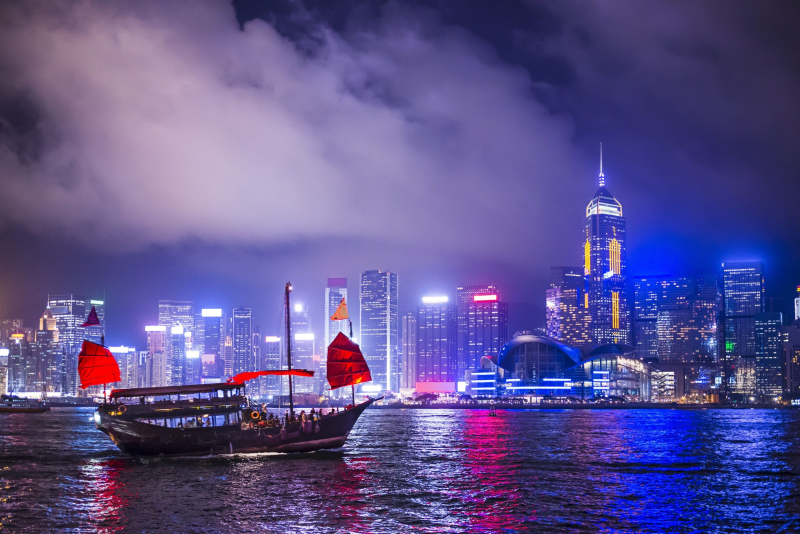Hong Kong

Hong Kong is located on the edge of mainland China in a unique position as a territory that symbolically, geographically and politically connects two worlds.
Since 1997 Hong Kong has been a ‘Special Administrative Region of China’, yet much of Britain’s cultural and economic influence – a relic of nearly 150 years of English colonial history.
Hong Kong is the perfect gateway for travellers to Southeast Asia and China, providing a smooth transition from west to east. Within its dense concentration of shops and offices there is a cross-pollinated cosmopolitan culture that embraces Nepalese and British cuisines with equal enthusiasm.
Corporate travel to Hong Kong constitutes a relatively large proportion of its visitor numbers. As one of the key economies in the world, Hong Kong Island is represented by a landscape of towering skyscrapers that greet business travellers on arrival.
Hong Kong consists of three regions: Hong Kong Island Kowloon, the New Territories with the Outlying Islands. Kowloon and the New Territories are part of the Chinese mainland; Hong Kong Island, containing the central business hub, lies on the southern side of the harbour facing Kowloon and the Outlying Islands – the well-known weekend destination for locals – are made up from 234 islands surrounding the Hong Kong island.
The image of Hong Kong that most hold is actually representative of just a small area of it, yet admittedly the area that is most visited. The brightly lit, energetic metropolis of the city in the rampant streets of Kowloon is delicately balanced by pleasant island areas of great aesthetic and cultural interest.
Within Kowloon itself you will find the architecture is a curious mix of western buildings; imagine temple structures hidden away under the impassive glass windows of lofty skyscrapers. You can visit the futuristic Science Museum or lose yourself to times past in the Museum of History. Likewise, you can wander from the banking district of Statue Square to the ancient traditions of Wong Tai Sin Temple. Such is the mismatched wonder of Hong Kong.
Climate
The best time to travel to Hong Kong is during the autumn months of October and November when the temperatures are milder. January and February are cold and rainy while during the period of June to September temperatures average 30 degrees Celsius (86 degrees Fahrenheit) with very high humidity.
Language
The official languages in Hong Kong are English and Chinese (Cantonese, but Mandarin is also widely accepted).
Passport Visa
All foreign visitors to Hong Kong must have onward or return tickets, except when in transit to mainland China or Macao. You also must have proof of sufficient funds to cover your stay. You will need to check visa regulations before you travel, however, as the rules may change regularly.
Safety
Hong Kong is a safe travel destination although the same caution should be exercised as when travelling to any city. There are frequent police patrols and emergency services are just a phone call away. The typhoon season is between April and October and flooding with landslides can occur.
Our Services
For all your high-end, bespoke leisure and corporate travel needs to contact our Travel Managers on 800 NEXA (6392). You can also contact us on info@nexatourism.com .